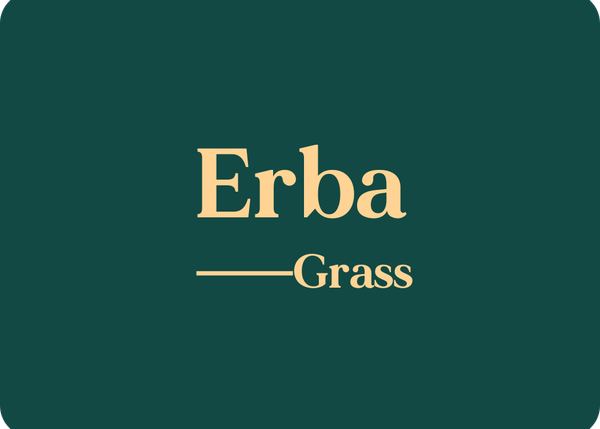Erba
NOUN [feminine]
Meaning and English translation 🔖
Grass
🇬🇧 It refers to grass, but it can also denote any herbaceous plant. This term is widely used in various contexts, from describing common lawn grass to herbs used in cooking or medicine.
🇮🇹 Si riferisce all’erba, ma può anche indicare qualsiasi pianta erbacea. Questo termine è ampiamente usato in vari contesti, dalla descrizione dell’erba comune dei prati alle erbe utilizzate in cucina o in medicina.
| Masculine ♂️ | Feminine ♀️ | |
|---|---|---|
| Singular | - | l' - un' erba |
| Plural | - | le - delle erbe |
Example sentences 💬
Abbiamo bisogno di tagliare l'erba nel giardino prima che cresca troppo alta.
We need to mow the lawn in the garden before it grows too tall.
La lavanda è un'erba aromatica molto apprezzata per il suo profumo.
Lavender is a highly valued aromatic herb for its fragrance.
Non c'è un filo d'erba in questo deserto arido.
There's not a blade of grass in this arid desert.
Hanno piantato delle erbe officinali nel giardino della scuola.
They planted some medicinal herbs in the school garden.
This article is brought to you by Giulia School, where you can learn Italian the natural way—with real conversations and passionate teachers guiding you every step of the journey. It’s the closest thing to immersion you can get without living in Italy. Click here to learn more.
Idioms with erba 🇮🇹
L'erba del vicino è sempre più verde
→ The grass is always greener on the other side of the fence
Marco non è mai soddisfatto di quello che ha, guarda solo quello che hanno gli altri. Per lui l’erba del vicino è sempre più verde.
Marco is never satisfied with what he has, he only looks at what others have. For him, the grass is always greener on the other side.
Non fare di tutta l'erba un fascio
→ Don’t generalize
Un errore non definisce un’intera categoria: non fare di tutta l’erba un fascio.
One mistake doesn’t define an entire category — don’t generalize.
Campa cavallo che l'erba cresce
→ Fat chance / Don’t hold your breath
Aspetti che ti chieda scusa? Campa cavallo che l’erba cresce!
You’re waiting for him to apologize? Don’t hold your breath!
L'erba voglio non cresce neanche nel giardino del re
→ “I want” doesn’t get
Non si dice “voglio”! L’erba "voglio" non cresce neanche nel giardino del re.
You don’t say “I want”! The “I want” grass doesn’t even grow in the king’s garden.
Talento in erba
→ Budding talent
È solo al primo anno di liceo, ma è già un talento in erba nella scrittura.
He’s only in his first year of high school, but he’s already a budding talent in writing.
Where does the word erba come from? 🔎
Erba comes from the Latin "herba," which has deep roots in ancient language. It originates from the Proto-Indo-European root *gʰreh₁-, meaning "to grow" or "to become green."
Interestingly, this same root gave rise to the Latin word "grāmen," meaning grass or turf. The evolution of "grāmen" highlights the lush, green vegetation that carpets the ground. This word eventually influenced the English term "grass."
In Italian, though, the root "grāmen" evolved into "gramigna," a term used to describe a particularly pesky weed. So, while "erba" paints a picture of the lush greenery we admire, "gramigna" reminds us that not all grass is welcome!





